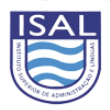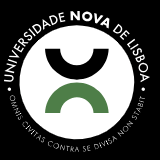Introduction to Lusophone University of Humanities and Technologies
The Lusophone University of Humanities and Technologies is the largest private university in Portugal and the main institution of the Portuguese-speaking Group. Its main goal is to promote Portuguese and train talents for Portuguese-speaking countries.
Overview
With more than 16,900 students and 1,671 professors, it organizes about 15 faculties, schools and institutes, offering 65 undergraduate degrees, 70 masters, 4 comprehensive masters, 8 international masters, 2 professional masters and 13 doctoral programs as well as a wide range of postgraduate courses, professional training and micro-certificates.
History and establishment time
Founded in Lisbon in 1986 or 1987, it belongs to a private Portuguese investment group aimed at developing higher education in Portuguese-speaking countries.
School strength
Faculty: There are 1,671 professors, with a teacher-student ratio of about 10.7.
Teaching facilities: The main campus is located in Lisbon, close to cultural institutions such as the National Library of Portugal, and there are also branches and sub-branches in many places.
Scientific research results: No particularly outstanding scientific research results have been found, but as a comprehensive university, it has conducted research in multidisciplinary fields and made certain progress.
Nature of the institution
Private university.
Educational philosophy
Not clearly mentioned, but as the main institution of the Portuguese-speaking countries group and the curriculum setting, it focuses on cultivating talents with international vision and can promote the scientific, cultural, economic and social development of Portuguese-speaking countries.
Key laboratories and disciplines
Key disciplines: covering natural sciences, economics and management, social sciences, engineering and technology, life sciences, arts and humanities and other fields.
Key laboratories: No clear information was found.
Faculty
There are the Faculty of Science and Health Technology, the Faculty of Economic Sciences and Organization, the Faculty of Communication, Architecture, Art and Information Technology, the Faculty of Psychology and Life Sciences, as well as the Faculty of Law, the Faculty of Physical Education and Sports, the Faculty of Engineering, the Faculty of Veterinary Medicine and other faculties.
Ranking
Ranked 1001-1200 in the 2023 THE World University Rankings, 351-400 in the Young University Rankings, and 151-200 in the 2019 European Teaching Rankings.
Expenses
No clear tuition standards were found, but the fees for students from former Portuguese African colonies are significantly reduced.
Campus Environment
The main campus is located in Campo Grande in Lisbon, surrounded by cultural venues such as the National Library of Portugal. The campus has a beautiful internal environment and advanced teaching facilities, providing students with good learning and research conditions.
-

Vasco da Gama University School
-

Higher Institute of Administration and Languages
-

Polytechnic Institute of Maia
-

Higher School of Nursing, Lisboa
-

Superior Institute of Maia
-

Atlântica University
-

Higher Institute of Education and Science Portugal
-

Polytechnic Institute of Leiria
-

NOVA University Lisbon
-

University of Minho
-

Mesoamerican University
-

Istmo University
-

Mariano Galvez University of Guatemala
-

Regional University of Guatemala
-

Galileo University
-

Francisco Marroquín University
-

Rafael Landívar University
-

University of the Valley of Guatemala
-

University of San Carlos of Guatemala
-

Technological Institute of Tlaxcala Plateau
-

Golfo University
-

Technological University of South Sonora
-

Technological University of Huejotzingo
-

Tizimín Institute of Technology
-

Chilpancingo Institute of Technology

